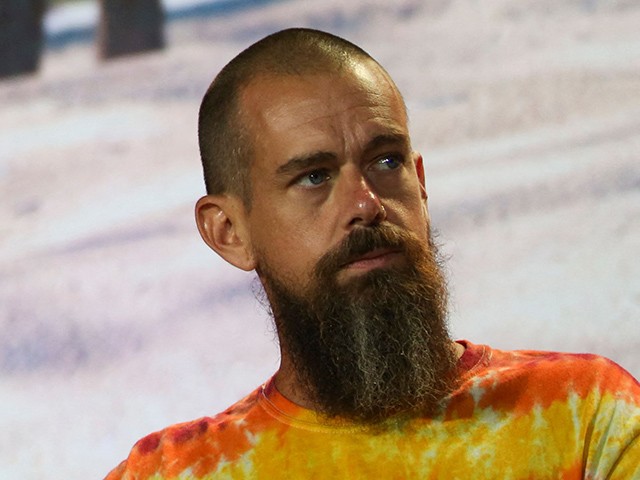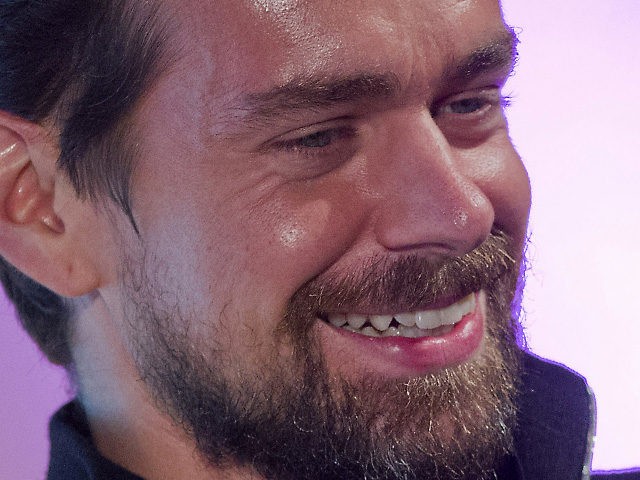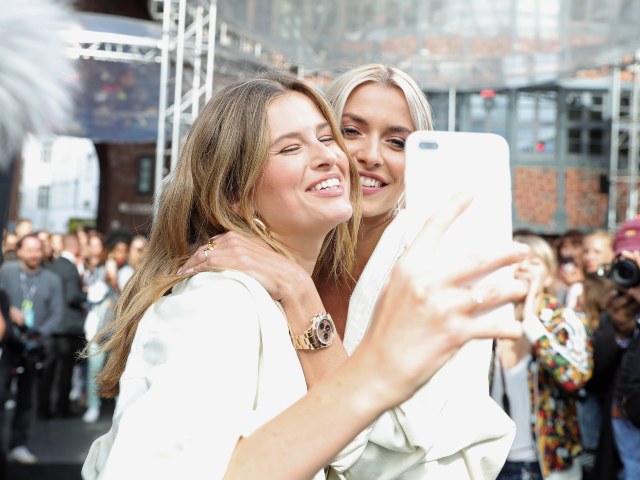The results from Twitter’s open competition to find bias in its photo-cropping algorithm are in — the Masters of the Universe built algorithms that prefer young, beautiful, and light-skinned faces.
The Verge reports that the results of a competition held by Twitter to find algorithmic bias in its photo-cropping system have been announced and returned some very interesting data. Twitter’s photo-cropping system became a point of contention in March when Twitter users began to experiment with the algorithm and discovered that it appeared to favor white faces over black faces when cropping photos.

Jack Dorsey, CEO of Twitter and co-founder & CEO of Square, attends the crypto-currency conference Bitcoin 2021 Convention at the Mana Convention Center in Miami, Florida, on June 4, 2021. (Photo by Marco BELLO / AFP) (Photo by MARCO BELLO/AFP via Getty Images)
In response to this discovery, Twitter launched an algorithmic bug bounty in an attempt to find out exactly what issues its photo-cropping algorithm was facing. Now, Twitter has confirmed previous suspicions white faces were prioritized over others.
The first-place entry into Twitter’s bug bounty competition found that Twitter’s cropping algorithms purposefully highlights faces that are “slim, young, of light or warm skin color and smooth skin texture, and with stereotypically feminine facial traits.”
The second and third-placed entries found that Twitter’s photo-cropping system discriminated against people with white or grey hair, implying age discrimination, and prefers English text in images to Arabic text. The results of the bounty competition were presented at the DEF CON 29 conference by Rumman Chowdhury, the director of Twitter’s META team, which studies Machine learning Ethics, Transparency, and Accountability.
Chowdhury stated during the presentation: “When we think about biases in our models, it’s not just about the academic or the experimental […] but how that also works with the way we think in society. I use the phrase ‘life imitating art imitating life.’ We create these filters because we think that’s what beautiful is, and that ends up training our models and driving these unrealistic notions of what it means to be attractive.”
The first-place prize of $3,500 was awarded to Bogdan Kulynych, a graduate student at EPFL, a research university in Switzerland.
Read more at the Verge here.
Lucas Nolan is a reporter for Breitbart News covering issues of free speech and online censorship. Follow him on Twitter @LucasNolan or contact via secure email at the address lucasnolan@protonmail.com


COMMENTS
Please let us know if you're having issues with commenting.